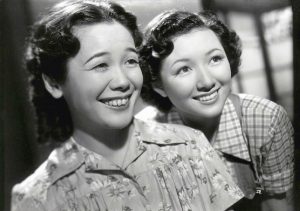Rosalee Clark, whose brother, mother, and stepfather were all stabbed to death in a single evening, states that she feels as if her life is now “fuel for people’s fascination” after she found a true crime novel about the killings. She was also shocked to see that the cover of the book illustrated a wren resting on the handle of a knife, a reference to her late mother’s favorite bird and her eventual death by stabbing.
Without her knowledge, Clark’s entire life story was being sold.
Recently, I noticed posters advertising a new True Crime Club around Tallwood. I don’t oppose the creation of this club or shake my head in disappointment at the people who will attend, however, I want to raise awareness about potential forms of true crime that are potentially harmful and disrespectful.
The term “true crime media” refers to any content centering on real cases that report the facts second-hand. True crime can be found in newspapers, blogs, TV series, films, and even podcasts.
Though true crime has existed since the 1800s, there has been a recent rise in its popularity, which some think is because of the COVID-19 pandemic. With such a large audience, many have begun experimenting with how true crime stories are told, which raises the question: When does the line between fiction and real cruelty start to blur?
A year ago, I tried to listen to a true crime podcast that I’d heard really great things about from online reviews. I couldn’t even get past one episode. The podcast hosts talked through a woman’s murder and the case that followed, but there were moments when they would break up the gruesome story with lighthearted jokes or edgy humor. It put a bad taste in my mouth. I could only think about how upset I would be if someone in my family died tragically and a group of strangers was laughing about it.
The human aspect–the lost lives of victims and the grief of their loved ones–is often brought up when asking whether true crime is right or wrong. In the U.S., there’s no law that requires a family’s permission or cooperation before going ahead with a production, book, or podcast, meaning that there is little to no action that a victim’s family can take if they don’t want their story to be public.
Monster: The Jeffery Dahmer Story, is a Netflix series that was made without the approval of any of the victims’ families – and since its release, many people have expressed how upset they are at the show’s existence.
Some may see true crime as a way to protect the memory of the victims, honoring the lives that were taken and allowing loved ones to find comfort in knowing that the murderer is being punished. Yet true crime is literally defined as “a story about a crime that occurred.” It is nice to believe that true crime is respecting the victims, but the focus will always be on the crime–the act of violence– rather than the people affected by it. Emphasizing the murderer and their motives means that the victim will be portrayed as someone less important than the real focus of the true-crime story: the killer. They will fade into the background.
The characterization of serial killers in feature films or television also adds to their celebrity status. Killers in true crime series are often played by famously charming actors such as Evan Peters and Zac Effron, who are known for having large and adoring fanbases. Large billboards have featured movie posters or advertisements about upcoming true crime movies, which has been seen as disturbing by some. After seeing a billboard ad for Netflix’s upcoming Dahmer series in central London, Anna Leszkiewicz stated that “Dahmer has, quite literally, been exalted: raised high over the city in a gilded frame like a god.”
By shifting the goal of true crime from informing to entertaining, companies can turn suffering into profit, privacy and respect are denied to the victims and their families, and serial killers and their acts of violence are glorified. It is important to tell the stories of the victims, but it is also important to do it in a way that honors them and does not turn them into just another name on a serial killer’s Wikipedia page.

















